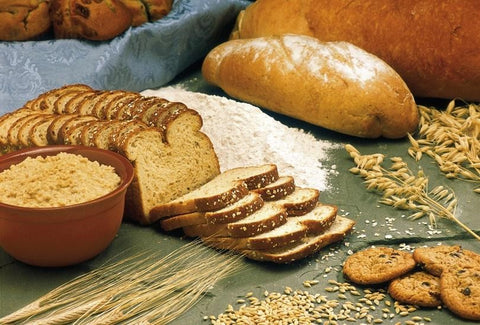Maida as it is known in India, is often seen in health-related articles as a bane more than a boon. However, the ironic fact lies in the widespread use of the flour in many items consumed by us on a day-to-day basis.
Almost all households indulge in items such as Samosas, Kachoris, Cakes, Chaklis and Bread are made from Maida. But here is the uptick, we have shifted to the healthier alternatives in this pandemic lockdown. And it looks like this trend is here to stay.

Many articles about Maida tell us to not engage in its consumption and how global cuisines are influenced by its importance. Let us dive and dig a little deeper and find out why this flour is not the most nutritious thing in the market.
To understand Refined Flour better, we need to look into what it is made up of. Coming from the Wheat family, deriving itself from wheat germ and wheat bran, the endosperm, which is on the outside, is removed to get refined flour and hence its name. Flour products that advertise themselves as enriched or fortified mean that the lost nutrients have been artificially included in them.

This means that refined flour has no nutritional value. Due to the loss of fibre, iron, magnesium and other such vitamins, the flour is left with no natural nutrients. Refined flour is bleached and made appealing by the factories, although its by-products are tasty and tempting their consequences are heavy.

Maida has been known to stimulate hunger and pushes the binging habit. It CANNOT fill you up for a long while. A product that is high on the glycemic index, means that it contains double the calorie count. With its consumption, immediate release of sugar takes place in your bloodstream. This leads to increase in weight and higher risk of getting diabetes.
Chemically, the flour has MSG or Ajinomoto, Sodium Meta-Bi Sulphate, Benzoic Acid, Mineral Oil and Alloxan. Our head’s swimming too. These chemicals are harmful in causing trouble for the pancreas, troubling the kidney and causing health complications for kids and pregnant woman.

Women must tread lightly when it comes to this flour. PCOS or Polycystic Ovarian Syndrome brings about hormonal imbalances and high levels of insulin. Throwing back light on the carbs in the refining of Maida, the already elevated levels of insulin are further spiked by the consumption of this flour adding on to the persisting insulin resistance.
Coming back to that digestion bit, Refined Flour is also known as the ‘Glue of The Gut’. Many important items such as breakfast foods, also fall under its trap, and we all know how important breakfast is. Sans fibre the Maida congests the system, slows down the digestion, slugging your metabolism; turning everything to glue. Often it results in headaches, migraines, and weight gain. It comes in a cyclic format, you see!

It can seem to be deceiving that we still see the consumption of Maida in large quantities around us, but it is crucial to take the first step and make the change to switch from this flour and eat healthier.

Alternates such as Ragi, Jowar, Atta or Whole Wheat Flour can reduce the amount of Maida used daily in the kitchen. Along with a health-conscious industry, we are driven to make the change in people’s diets by contributing to the cause of providing healthier breakfast and snacking options. Our product base is Ragi, an ancient millet part of the traditional palette of multiple households. The immunity-building, calcium-boosting and commitment-friendly millet is a friend of the body. The goodness of millets that we bring, comes with a careful thought of promoting the powerhouse Ragi, and ensuring that our products leave you nourished and Maida-free.

With the Soulfull range of Ragi Bites, Millet Muesli, Smoothix and Oats & Flakes we stick to our message to take consumers on a healthy, soul-filling journey on a path to a healthier mind and body.









